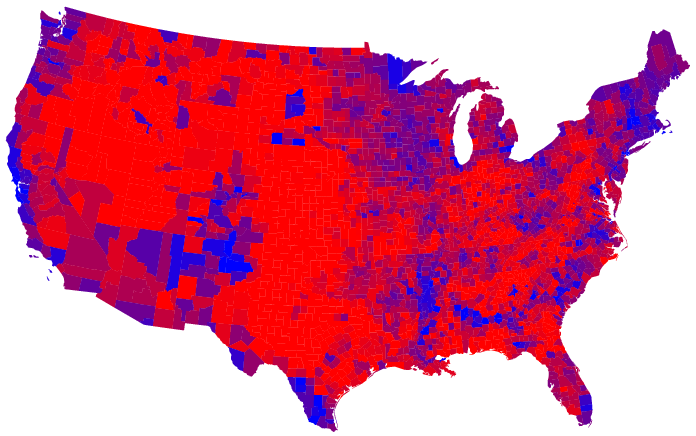
Jonathan Haidt, a psychologist from the University of Virginia, provides a compelling argument about moral psychology and the political mind. According to Haidt, there are five psychological systems that provide the foundations for the world's many moralities.
The five foundations are:
1.) harm/care
2.) fairness/reciprocity
3.) ingroup/loyalty
4.) authority/respect
5.) purity/sanctity.
Haidt makes the case that political liberals have moral intuitions primarily based upon the first two foundations. Political conservatives, on the other hand, have moral intuitions primarily based upon all five foundations.
Does this adequately describe you? As a conservative? As a liberal? Given this rubric, where do you think political "others" fall on this spectrum?
You can watch Haidt's presentation here.


4 comments:
As a liberal, I think that respect for authority is a large part of our morality system. We just want leadership that we can respect!
I'm a democrat and I'd like to believe I do base my decisions primarily on numbers one and two. Numbers three-five seem like logical fallacies to me(appeals to loyalty, authority, and tradition, not respectively).
There is another interesting study over on Newsweek (http://www.newsweek.com/id/159540) that shows the differences in sensitivity between liberals and conservatives when shown a slide show of images like spiders and blood. Conservatives typically exhibit strong physical reactions while liberals typically show no physical response.
I'd like to think that this accounts for republicans making decisions based on emotion (I'm voting for Sarah Palin, she's a mom just like me!) rather than reason. However, I may be giving democrats too much credit.
If you can find Newsweek's last issue there are several more studies, like how our brain influences our emotions.
Oh and Josh, do you know why my html code for a hyperlink isn't accepted? Is it because I'm just a lowly member? You elitist librarians.
The last three characteristics (loyalty, authority, and sanctity) are more about establishing order. Conservatives, as Haidt points out, believe that order is important and difficult to maintain. Therefore, they tend to believe in the ideological hierarchy of God, Nation, Family. Liberals, on the other hand, tend to give more credence to beneficence and fairness.
However, in his presentation, Haidt gives credence to the idea of liberals actually valuing more than just the first 2 principles. They just apply the principles differently. His example, which I think is correct, is that conservatives view purity through the lens of sex (abstinence is the only answer!) Liberals view purity through the lens of food and medicine (is that organic? I only use homeopathic remedies!).
Generalizing large groups (Liberals vs. Conservatives) will usually result in a reductionist argument (5 principles define them all...). I would hope that the political mind of individual Americans is more complex than these five principles.
Nevertheless, underscoring the shared respect from both liberals and conservatives for the first two principles provides a firm foundation upon which to explore commonality between two distinct political groups.
Political nihilist still believe in nothing.
Rob - html coding in the comments section of blogspot has always been somewhat sketchy. It doesn't even work for me sometimes.
I would definitely agree that Republican doctrines often reflect the last two, in that they tend to "blindly follow" leaders simply due to their title. I'd assume the term respect is more about obeying than treating someone with kindness.
When it comes to loyalty, Democrats, or the "people's party" is loyal to the citizens, not one authoritative figure. Small, local issues are addressed that would be somewhat overlooked by the opposing party. This, I believe, is a shift in resources in the right direction--using our goods in beneficial reasons besides feeding the big machine.
And when it comes to "sanctity".. eh, do I really even have to mention gay marriage?
Sorry, it's election season...
Post a Comment